Search Results
Showing results 1 to 20 of 35
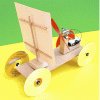
Fan Cart
Source Institutions
If a sailboat is stranded because there is no wind, is it possible to set up a fan on deck and blow wind into the sail to make the boat move?
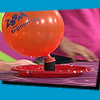
Hovercraft
Source Institutions
In this activity, learners make plates levitate! Learners build "hovercrafts" using simple materials to explore friction and motion.
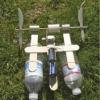
Electric Paddle Boat
Source Institutions
In this activity, learners build an electric two-paddle boat using paint paddles, plastic knives, and empty water bottles.
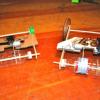
Bottle Cars
Source Institutions
In this activity, learners explore motion, energy, and electricity by constructing bottle cars that run on motors.
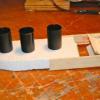
Paddle Boat
Source Institutions
In this activity, learners build an old-fashioned paddle boat out of simple materials.
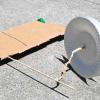
Rubber Band Racer
Source Institutions
In this activity, learners construct speedy vehicles made out of paper plates and powered by twisted rubber bands.
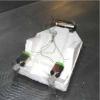
Airboat
Source Institutions
In this activity related to Newton's Laws of Motion, learners build a boat powered by a propeller in the air.

Cable Car
Source Institutions
In this activity, learners string a line across the room and build cable cars that can move from on end to the other.
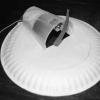
Hovercraft
Source Institutions
In this activity, learners build a hovercraft using a paper plate, cup, and simple motor.
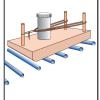
Newton Car
Source Institutions
In this activity, learners work in teams to investigate the relationship between mass, acceleration, and force as described in Newton's second law of motion.
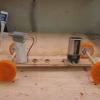
Propeller-Powered Car
Source Institutions
In this activity, learners construct cars that are powered by hand-made, electric propellers.

Newton's in the Driver's Seat
Source Institutions
In this playful physics activity (page eight of the pdf), learners use toy cars to explore how speed and weight affect the results of collision.

Spaghetti Bridge
Source Institutions
Learners explore the field of civil engineering by making a bridge using spaghetti as their primary building material.

Construction Technologies: Construct the Strongest Bridge
Source Institutions
Learners work in pairs to create three simple types of bridges, a beam bridge, an arch bridge, and a suspension bridge.
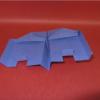
Glider
Source Institutions
In this activity, learners construct a paper glider to experiment with aerodynamic forces.
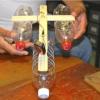
Speedboat
Source Institutions
In this activity, learners build a speedboat using paint paddles, a propeller, and film canister. Learners attach a simple circuit and motor to the boat to power the propellers.
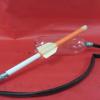
Stomp Rocket
Source Institutions
In this activity, learners build rockets and shoot them into the air by stomping on the plastic bottle launchers.
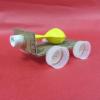
Balloon Car
Source Institutions
In this activity, learners explore force and motion by constructing cardboard cars that are propelled by balloons.
Build a Borneo Glider
Source Institutions
In this inquiry-based activity, learners investigate the basic forces of flight as they construct their own paper glider that represents a rainforest creature from Borneo (large, tropical island in So

Speed, Eggs and Slam!
Source Institutions
In this fun hands-on activity, learners create a safety device to protect an egg "passenger" in a toy car crash. Learners experiment with different solutions to this very problem.
